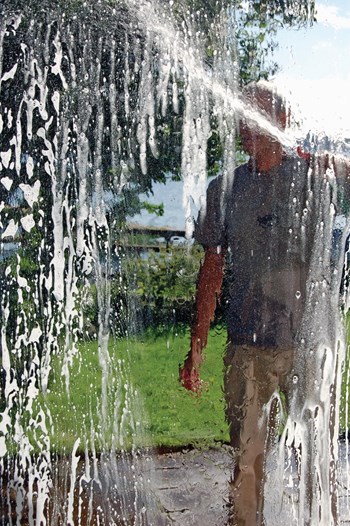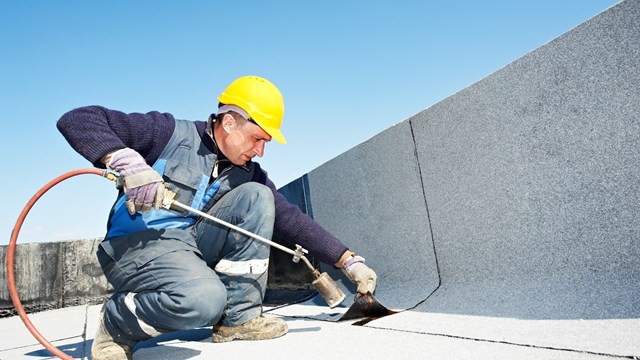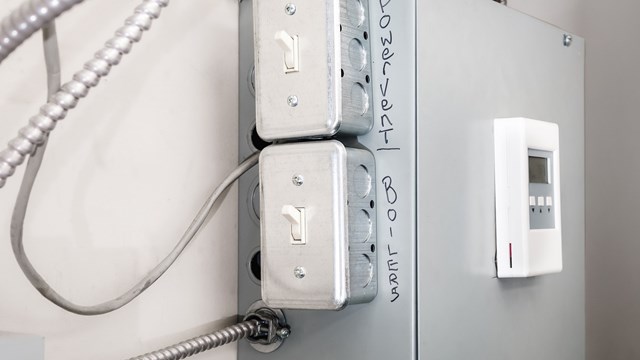
At every condominium community it happens every hour; every day. Coffee gets spilled, mud gets tracked, windows get smeared. When residents move, errant table legs and oversized sofas can scrape black marks, and even divots, into painted walls. Property managers know that keeping things clean is one of the uppermost duties of any association caretaker.
But cleaning staff are like the late, great Rodney Dangerfield in that they have every right to complain, “I don’t get no respect.” How important, really, is a professional cleaning crew?
Consultants who have studied the success of Walt Disney World have surveyed thousands of guests about what they like best about their experience at a Disney resort. Is it the rides, entertainment, food, shopping, hob-nobbing with Mickey? No, the number one thing they like about the themed amusement park is, “It’s so clean.”
Not only is cleanliness a top priority in a community’s long-term planning, it must be included with other contingencies that make up a manager’s “emergency” list, along with the plumbers, electricians and others who can respond immediately if a pipe bursts or lightning strikes. If someone gets sick in the fitness room on Saturday evening, no one wants to wait until Monday morning to see it cleaned up.
The methods used by community associations for keeping things clean can vary as much as the communities themselves. While the very smallest — a two or three-unit building— may rely on volunteer cooperation of its two or three owners, the vast majority of community associations hire professionals for regular maintenance as well as emergency clean-ups. The range of duties can vary widely.
At Champion Cleaning, based in North Chelmsford, Massachusetts, president/owner Barry LaValle specializes in residential multifamily and condominium communities. He has clients as small as an eight-unit building and as large as the Salem, Massachusetts Housing Authority, and the duties he’s contracted with each of them really run the gamut. “For some clients, we visit once a week… for others, we’re there almost every day.”
A typical punch list includes vacuuming carpets in hallways and other common areas; cleaning and checking the equipment in laundry rooms as well as fitness centers, bathrooms, function rooms and even outdoor areas.
“We will roll out the trash bins and pick up litter for our larger properties,” states LaValle. “We also handle some of the more heavy-duty jobs on a community’s common buildings and exteriors, such as power-washing… and we can do window cleaning up to three floors high.”
Carpet cleaning is important to the appearance of any property, and most associations schedule it at least once or twice a year — or more often if they can afford it.
LaValle’s firm, which grew from a one-man operation in 1995, includes 20 full-time staff that services over 100 communities. Because his crew is regularly on-site, they are able to monitor other things that need attention, above and beyond just the cleaning. “We are the eyes and ears for the property,” he notes, adding, “At some communities, we order regular supplies, such as bathroom items, and replace light bulbs.”
The work doesn’t begin and end with common areas. When the cleaning staff is doing major tasks such as carpet cleaning or window washing, residents take notice and often place orders for major cleaning within their own units. It can be cost-effective, LaValle notes, for a crew that’s already on-site to clean carpets for unit owners.
What a condo board really needs
The bottom line is that an association board must decide exactly which tasks they would like covered by a professional service and to negotiate with a number of cleaning maintenance companies. Different companies may offer different services—and to cover all the bases, more than one company might be required.
LaValle admits that the cleaning business “doesn’t involve a big profit margin… success is all about sustaining customers. Sometimes it takes a condo board a long time to realize that they’re getting what they paid for… Some boards are very well aware that it costs some money to keep things well-maintained.
“Most [boards or managers] will keep you if they’re happy with your work,” he continues, noting that sometimes his services extend for years without anyone renewing—or paying attention to—the original [one-year] contract. “On the other hand,” he points out, “some condo boards bid out the service every year… This happens especially when board members change.”
His advice to managers or board members is to remember that “no one [cleaning service] is perfect.” It’s important to inform the company immediately if problems arise, rather than letting things slide and allowing small problems to become big ones.
Of course, the level of perfection that associations demand can vary from one property or community to the next. One community may be satisfied with the level of cleaning provided by a resident as a “side job,” while another association looks to professionals and expects perfection. “Usually the person with the highest expectations [for cleaning],” LaValle notes, is also “the least willing to pay very much.”
Ease of maintenance is in the materials
When floors or walls need replacing, a plethora of materials are available in the commercial-grade market, with new, improved products offered all the time, most of them geared to ease of installation, quick cleaning—and very competitive pricing.
Carpeting is actually very practical, LaValle says, “as long as it’s a good, commercial grade, installed correctly with few seams.” Dark colors are recommended, he adds. “Carpet tiles, too, are an effective option… in function rooms or large common areas,” because when there’s damage such as tears or burns, individual tiles can be pulled out without having to replace the entire carpet.
On most walls, many painters use matte or low-luster finishes in common areas because if there is deep damage to the surface that must be repaired with plaster, the matte finish paints blend better with the surrounding wall, he says. “Homeowners may prefer a satin-type finish within their own units … that’s easier to clean. With the satiny surface, however, if you do a patch job it will stand out, and the entire wall might need repainting.”
Some clean-ups really need a pro
Professional cleaners routinely do minor repairs along with clean-ups, and some do major rehabilitations and even disaster clean-ups. LaValle says his crew has tackled some tenant-turnover jobs that were downright bio-hazards. “We had one job where the person moving out had left rotting food and animal waste… for what looked like weeks or months. The crew had to suit up with masks and goggles… it was a real health issue.”
When residential units, or any buildings, suffer such serious damage, there is an entire level of professional cleaners who deal exclusively with clean-up and restoration of properties that have suffered from fire, flood, mold or bio-hazards.
The key to disaster restoration—as it’s termed—is quick response, says Sarah Friedman, representative for ServiceMaster by Gilmore Brothers, which has offices in Framingham and Norwood, Massachusetts. “Our firm does cleanup and restoration at properties damaged by fire, water, mold or bio-hazards such as at death or crime scenes,” she states. “The most crucial [service we provide] is our immediate response and getting a ‘dry down’ accomplished right away.”
“We get called in by management companies, boards of directors and unit owners as well as insurance companies. There are a tremendous number of companies doing this work, and many are nationwide franchise operations. The Gilmore Brothers represents the third generation of a local company. The connection with ServiceMaster means that our crew and marketing team are trained in these specialized areas [of biological and chemical hazards]. We have 60 employees working mostly in Eastern Massachusetts.
“We tell property managers that emergency pre-planning is essential… but it’s often overlooked,” she notes. “Managers will admit, ‘When something goes wrong I have about five minutes before someone is yelling at me.’ That’s why it’s wise to figure out whom you’re going to call—before a disaster happens.
“The thing to look for in a disaster restoration company,” she continues, “is response time. We advise managers to test [a potential response team] and see if they pick up their phone at all hours.
“At Gilmore Brothers, a real human always picks up the phone… We have people on-call 24/7 and can dispatch a crew right away,” Friedman says. “We want to make this unpleasant experience as palatable as possible.”
Marie N. Auger is a freelance writer in Westminster, Massachusetts, and a regular contributor to New England Condominium magazine.






Leave a Comment